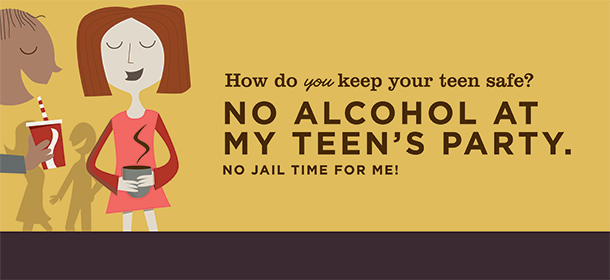
Parents, What You Can Do
A Big Job with No Pay
Being a parent is hard work, probably the hardest job you’ll ever take on! New trends and substances emerge daily that threaten the safety and wellbeing of our children. There is good news, though! You can help!
Contrary to what your teen tells you, what you say (or don’t say) really does matter!! Research shows that parents have the most influence on whether or not their child drinks.
Discover more tips in our Tips Talk: Parents, you matter. Help reduce underage drinking and other drug uses.
BN Parents encourages you to use this power!
The Seven Most Important Steps:
- Set clear “no-alcohol” rules.
- Establish consequences.
- Enforce and follow through.
- Review rules regularly.
- Know where they are.
- Know who they are with.
- Know what they are doing.
Don’t assume that your children know how you feel about underage drinking. You must take an active role in shaping their ideas about alcohol use.
- Know Where you Stand! Make sure you know the harmful effects of alcohol on youth. Make sure all the adults in your house talk it over in advance and are on the same page
- Be Clear Research shows that most children respond best to clear rules and consequences. Tell your child where you stand on underage drinking. Remind them of your expectations and desires for them to stay alcohol-free until they are 21. Some helpful resources are:
- Establish Family Rules and Expectations Establish a no alcohol use rule for your kids. Work with your child to establish a fair contract and talk through the consequences for breaking these rules. If you’d like, you can model your family contract around the BN Parents Safe Teen Contract or Expectations for a Night Out.
Limiting Youth Access to Alcohol:
You can affect your children’s risk of drinking by limiting their access to alcohol and setting a positive example:
- Refuse to give or sell alcohol to your children.
- Check in with your teen before and after they go out. (Use this helpful “Going Out” Checklist)
- Lock up your alcohol and make sure you monitor the quantity.
- Stay at home when your child hosts a party.
- Talk to other parents about not having alcohol at parties with your child.
- Plan activities in your home that are alcohol-free.
- Report underage drinking to the police. If you know of a party coming up, contact your local law enforcement agency with the name, address, and date of the party.
There are legal consequences for providing alcohol to youth.
- As a parent, you cannot give alcohol to your teen’s friends under the age of 21 under any circumstance, even in your own home, even with their parent’s permission. You also cannot knowingly allow a person under 21, other than your own child, to remain in your home or on your property while consuming or possessing alcohol.
Here are some general tips to keep in mind when talking to your child about underage drinking—regardless of age:
- Listen to your child/teen. Ask and hear what they think!
- Whether married or divorced, parents need to work together and practice what they will say. Establish rules together before discussing them with your child.
- Be consistent
- Study and learn the facts about underage drinking.
- Give your children age-appropriate information about alcohol use.
- Use short, simple explanations and teachable moments. Take advantage of the time you already spend together, like going to and from school and other activities, or afterschool time spent at home.
- Your child will ask questions, so listen and be ready to answer. Don’t be afraid to say “I don’t know” or “I’ll have to think about that” when appropriate.
- Use conversations rather than lectures.
- Talk about your values and feelings.
- Discuss images on television and in movies that glamorize alcohol.
- Be aware of your own alcohol use around your children and set a positive example.
- Talk about your own experiences or people you’ve known who have had issues with alcohol.
- Stay calm and avoid unrealistic threats.
- Tell your child, often, that you love him/her even when they make mistakes.

